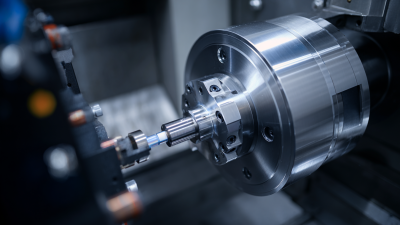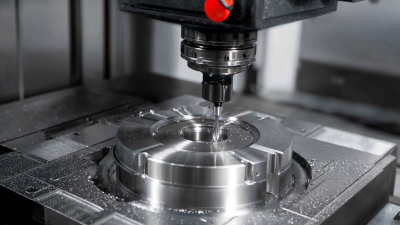Exploring the Future of Manufacturing: How CNC Machine Tools Revolutionize Precision Engineering
The future of manufacturing is being profoundly reshaped by the advancements in CNC machine tools, which are pivotal for achieving unparalleled precision in engineering. According to a report by Allied Market Research, the global CNC machine tools market is projected to reach USD 100 billion by 2027, growing at a CAGR of 6.7% from 2020 to 2027. This growth underscores the increasing reliance on computer numerical control systems to enhance efficiency and accuracy in production processes. As industries strive for operational excellence and cost-effectiveness, CNC machine tools not only streamline manufacturing but also enable the fabrication of complex geometries that were previously unattainable. The integration of smart technologies, such as IoT and AI, further amplifies the capabilities of CNC machine tools, positioning them as a cornerstone in the evolution of precision engineering.
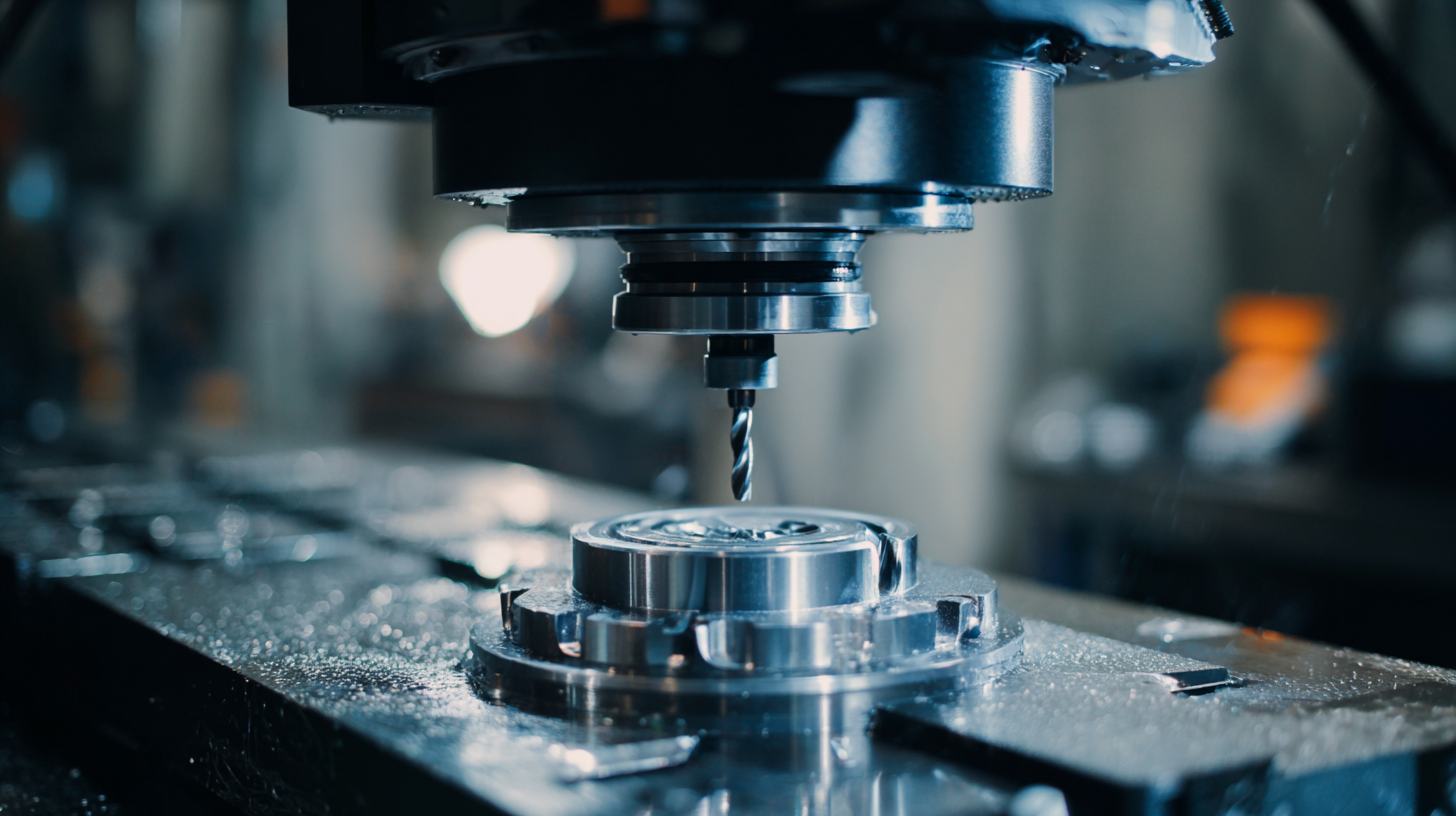
The Impact of CNC Technology on Precision Manufacturing Efficiency
CNC (Computer Numerical Control) technology has significantly transformed the landscape of precision manufacturing. Reports indicate that the global CNC machine market is expected to reach over $100 billion by 2026, growing at a compound annual growth rate (CAGR) of approximately 6%. This surge is driven by the urgent demand for precision and efficiency in production processes. CNC machines allow for intricate designs and high tolerances, which are critical in sectors such as aerospace, automotive, and medical devices. For instance, a study by the National Institute of Standards and Technology (NIST) showcased that manufacturers utilizing CNC technology improved their operational efficiency by up to 30%, while reducing waste and operational costs.
Furthermore, the integration of advanced technologies such as AI and IoT with CNC machining is revolutionizing the manufacturing efficiency landscape. A recent report from Deloitte highlights that companies leveraging smart manufacturing technologies, including CNC automation systems, are achieving productivity gains of up to 20% while enhancing their supply chain resilience. As these systems optimize machining operations and reduce cycle times, they allow manufacturers to meet rising customer demands swiftly. With the ability to produce complex geometries and maintain consistency, CNC machine tools not only elevate the quality of precision engineering but also secure a competitive edge in the modern manufacturing arena.
Exploring the Future of Manufacturing: How CNC Machine Tools Revolutionize Precision Engineering
| Dimension | Traditional Manufacturing | CNC Manufacturing | Efficiency Improvement (%) |
|---|---|---|---|
| Setup Time | 60 minutes | 10 minutes | 83% |
| Production Speed | 15 units/hour | 30 units/hour | 100% |
| Material Waste (%) | 20% | 5% | 75% |
| Setup Changes Time | 30 minutes | 5 minutes | 83% |
| Precision (mm) | ± 0.1 | ± 0.01 | 90% |
Key Advancements in CNC Machine Tools and Their Applications
CNC machine tools, often referred to as the "mother machines of industry," play a pivotal role in precision engineering and manufacturing. Recent advancements in CNC technology have significantly enhanced capabilities across various sectors, particularly in automotive and defense. For instance, the introduction of advanced CNC turning equipment has allowed manufacturers to achieve higher levels of accuracy and efficiency, which are critical in meeting stringent industry standards.
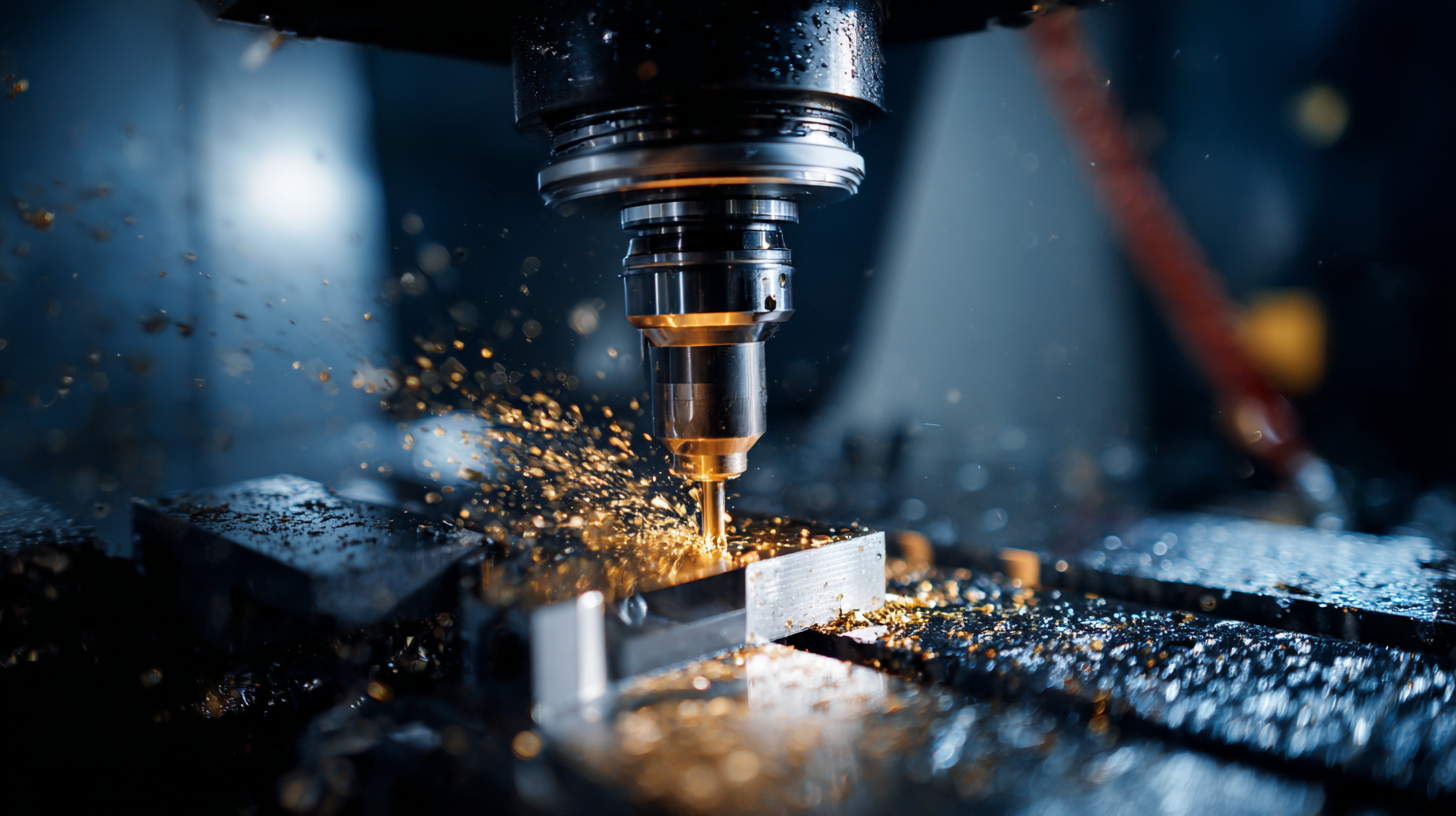
The rise of automation has also contributed to the growth of specialized CNC machine tools, such as the CNC above-floor wheel lathe, projected to see substantial market expansion in the coming years. This technology not only streamlines production processes but also reduces labor costs and minimizes human error, thereby optimizing operational workflows. The Asia Pacific region, led by China, is witnessing remarkable growth in the machine tools market, with expectations to reach a notable valuation by 2033, underscoring the increasing importance of CNC technology in modern manufacturing.
Integrating Automation and CNC for Enhanced Production Capabilities
The integration of automation and CNC technologies is fundamentally transforming manufacturing capabilities across various industries. With the rapid adoption of digital manufacturing technologies, companies are experiencing significant improvements in productivity, efficiency, and precision. Automated systems, particularly in tool grinding and CNC slitting, are becoming crucial to meet the increasing demand for high-precision components. The market for automated tool grinding systems is projected to reach USD 3.1 billion by 2035, demonstrating a robust growth rate that highlights the industry's shift towards more sophisticated manufacturing practices.
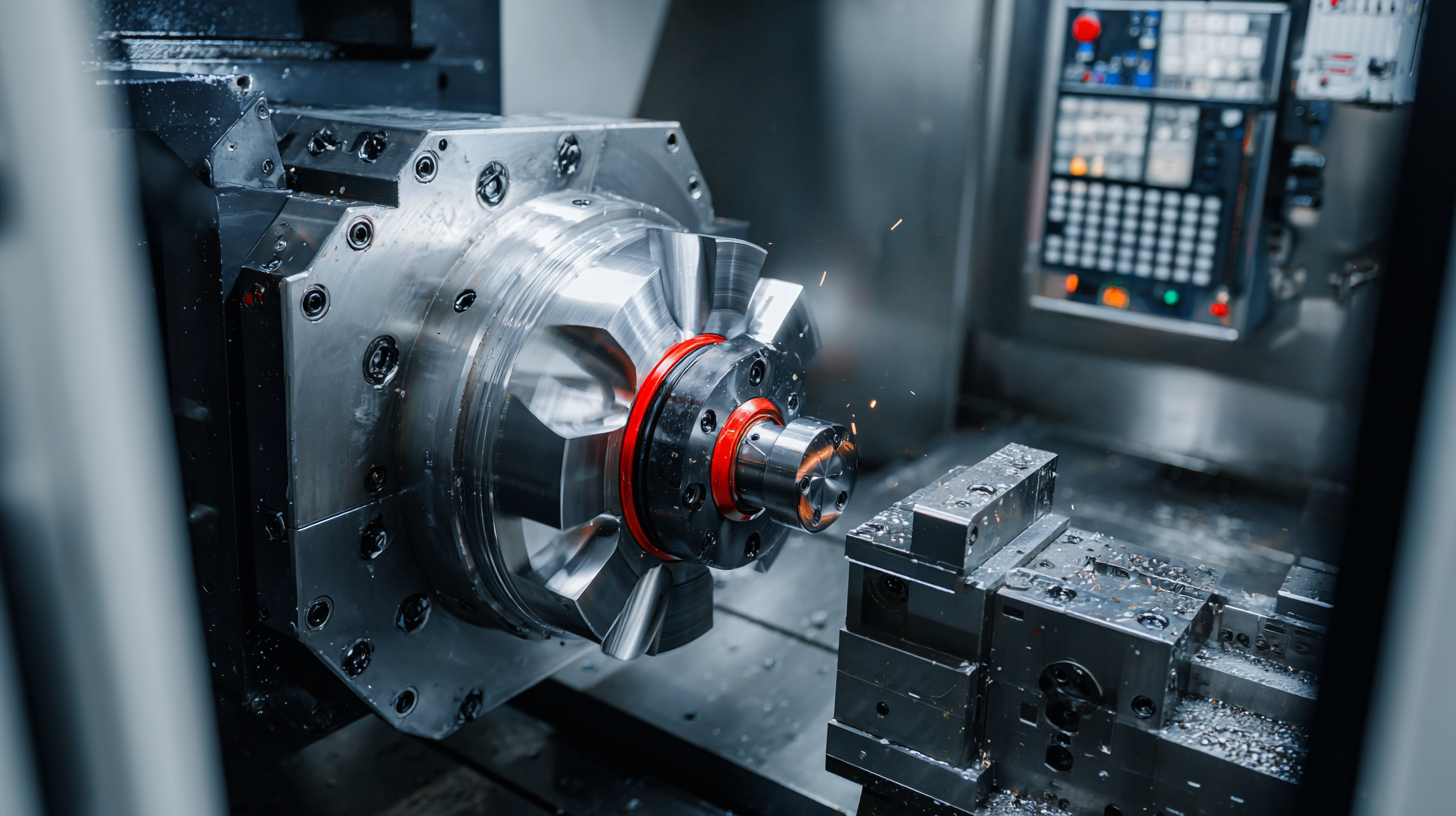
Moreover, the synergy between CNC systems and robotic automation enables faster tool changes and optimized material handling. This not only streamlines production processes but also minimizes downtime and enhances overall operational efficiency. As industries strive for cost-effectiveness and higher quality outputs, the transformative power of integrated automation technologies is more evident than ever. With projections for sustained growth in various CNC markets, such as tool grinders and slitting lathes, the future of manufacturing is clearly leaning towards advanced automation solutions that promise enhanced capabilities and competitive advantages in an ever-evolving marketplace.
Challenges and Solutions in Adopting CNC Technologies in Industries
The adoption of CNC technologies in various industries is a transformative process that addresses the growing demand for precision and efficiency. As industries seek to transition from traditional operations to more automated processes, CNC machine tools become increasingly critical. The CNC software market is projected to grow from $3.12 billion in 2024 to approximately $5.67 billion by 2033, demonstrating a compound annual growth rate (CAGR) of 7.2% from 2026 to 2033. This substantial growth reflects the industry's commitment to embracing digital manufacturing solutions that enhance productivity and streamline operations.
However, the journey to successfully integrate CNC technologies is not without challenges. Industries often face barriers such as the initial costs of equipment, the need for skilled personnel to operate advanced CNC machines, and the potential disruption to established workflows. The CNC controller market is expected to grow from $33.66 million in 2025 to $228.7 million by 2033, with a steady CAGR of 2.2%. This growth underscores the need for effective solutions to overcome these challenges, such as comprehensive training programs and phased implementation strategies that allow companies to adapt gradually to new technologies while minimizing disruption.
Adoption Rates of CNC Technologies in Different Industries (2023)
This chart illustrates the adoption rates of CNC technologies across various industries in 2023. The manufacturing sector shows the highest adoption, followed by aerospace, automotive, and medical device manufacturing, highlighting the ongoing shift towards automation and precision engineering.
Future Trends: The Role of AI and IoT in CNC Manufacturing Evolution
The evolution of Computer Numerical Control (CNC) machine tools is profoundly influenced by advancements in artificial intelligence (AI) and the Internet of Things (IoT). As industries pivot towards smart manufacturing, the integration of IIoT technologies accelerates this transformation. By adopting a multilayer architecture for IIoT, manufacturers can enhance their operational efficiency and agility, allowing for more precise and flexible production processes. This shift is particularly critical in regions like Taiwan, where the CNC machinery sector is adapting to meet burgeoning demands for digital transformation brought on by the ongoing effects of the COVID-19 pandemic.
Tips for manufacturers looking to embrace AI and IoT:
- Assess your current automation systems and identify areas that could benefit from AI for improved decision-making.
- Invest in IIoT solutions that promote seamless integration between machines, enabling real-time data sharing and better resource management.
Tips for leveraging new technologies:
- Collaborate with technology providers to stay abreast of the latest AI and IoT applications tailored for CNC machinery.
- Regularly train your workforce on the latest technologies to maximize the potential of newly implemented systems.

